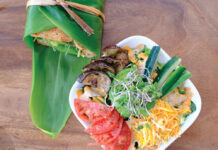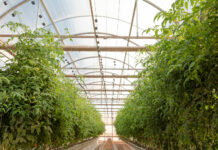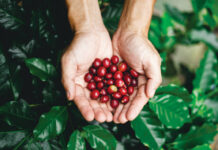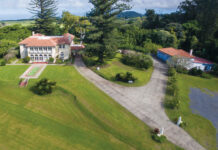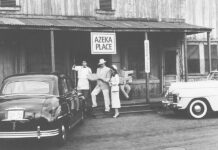From a Crock-Pot, Cotter ladles tea that has been brewing for five days. It smells pungent, almost sweet. Among other things, the tea contains ginseng, angelica and peony root. It’s for building the adrenals and kidneys, Cotter explains.
Though it’s just a few steps from Makawao’s main intersection—Makawao and Baldwin Avenues—Dragon’s Den is set back, away from the cars, stores, restaurants and cafés; right in the heart of town, it feels remote, a place to convalesce. The pharmacy is the hub and several clinics, including Cotter’s, are the spokes. It wasn’t always like this, though. When the Cotters first opened their clinic in 1982, Makawao looked like a ghost town—with a lot of dead, empty space. A Chinese medical practice here was an anomaly, but rent was cheap.
As his clinic grew, so did his need for herbs. So in 1988, Cotter opened Dragon’s Den. In Chinese culture, the dragon represents power, energy, strength and clarity. However, Cotter drew the name from this symbol and a different source: It was, he grins, the handle for a sailor’s saloon and brothel in Shanghai in the late 1800s. That den was stocked with a different kind of herb (opium).
With tea in hand, Cotter sits back down and returns to the topic of Dr. Li. The doctor wasn’t interested in the answers themselves, remembers Cotter, but was testing his potential student’s spirit. After an hour-and-a-half discussion, Dr. Li told him to return at 3:30 the next morning for meditation. Thus began the apprenticeship. “I had to spend my time with him sweeping floors, making dinners, carrying bags and studying and studying and studying,” explains Cotter.

